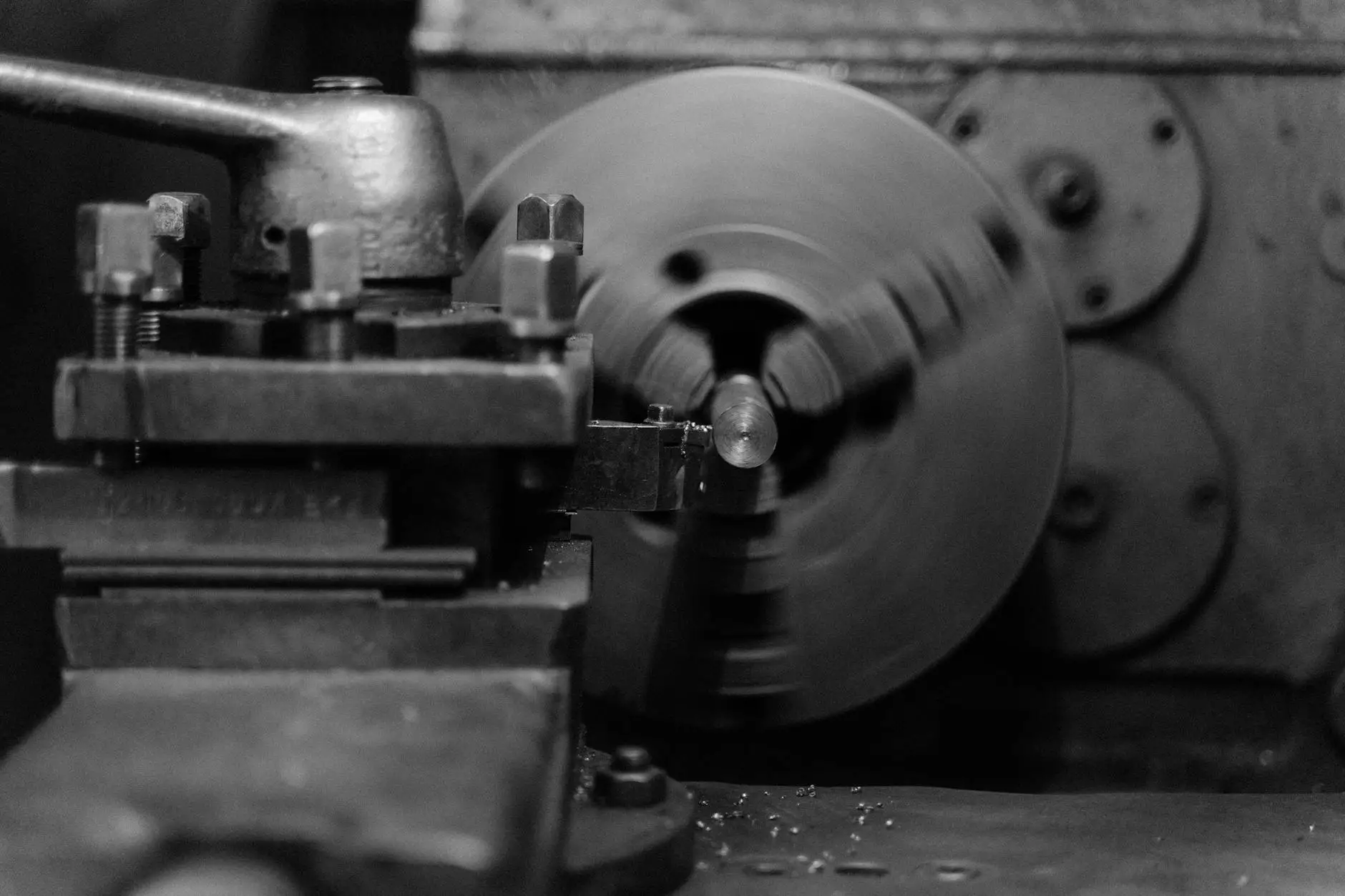Understanding Lathe Machine Parts Manufacturers: The Backbone of Precision Engineering

The manufacturing landscape is constantly evolving, driven by technological innovation and the demand for precision in every component. At the heart of this dynamic industry are lathe machine parts manufacturers, whose contribution is pivotal in the fabricating sector. In this comprehensive guide, we will delve deep into the roles, challenges, and solutions offered by these manufacturers, ensuring that you gain insightful knowledge that can help elevate your business's operations and quality control.
What Are Lathe Machines?
Lathe machines are versatile tools in the manufacturing industry, utilized primarily to shape materials such as metal and wood. They operate by rotating a workpiece against a cutting tool, enabling precise shaping and machining. The importance of lathe machines is underscored by their ability to produce intricate designs, with applications ranging from automotive components to aerospace engineering.
Why Lathe Machine Parts Manufacturers Are Crucial
As the manufacturing sector continues to grow, the need for reliable and high-quality parts becomes indisputable. Here are some reasons why lathe machine parts manufacturers hold a vital position in the industry:
- Precision: High-quality lathe machine parts ensure that the machines operate correctly, leading to precise machining processes. In sectors where accuracy is paramount, such as aerospace or medical device manufacturing, even a minor flaw can lead to catastrophic failures.
- Durability: The longevity of manufacturing equipment heavily depends on the quality of its parts. Investing in well-crafted lathe machine components can drastically reduce downtime and maintenance costs.
- Innovation: Manufacturers are consistently pushing the envelope to design cutting-edge parts that enhance machine performance. By collaborating with lathe machine parts manufacturers, businesses can integrate the latest advancements in technology.
Understanding the Process of Manufacturing Lathe Machine Parts
The process of manufacturing lathe machine parts involves several stages, each integral to achieving precision and quality:
1. Material Selection
The foundation of any high-quality component begins with careful material selection. Manufacturers often use materials such as:
- High-Speed Steel (HSS): Known for its toughness and ability to withstand high temperatures, HSS is ideal for producing cutting tools.
- Carbide: Offering excellent wear resistance, carbide is often used for tips and inserts in lathe tooling.
- Aluminum Alloys: Lightweight yet strong, these are often used in components requiring reduced weight without sacrificing strength.
2. Design and Prototyping
Once the materials have been chosen, engineers create detailed designs using computer-aided design (CAD) software. Prototyping is essential to validate the design before mass production, allowing for adjustments based on real-world testing.
3. Machining Process
The actual manufacturing entails several machining processes, which may include:
- Turning: A common method where the workpiece is rotated while a stationary cutting tool shapes it.
- Milling: The use of rotary cutters to remove material, creating complex shapes that would be difficult to achieve with turning alone.
- Grinding: For finishing purposes, grinding creates a fine surface finish and can achieve tighter tolerances.
4. Quality Control
Quality control is a non-negotiable aspect of manufacturing lathe machine parts. Rigorous testing and inspection ensure that each part meets the required specifications and tolerances. This includes:
- Visual inspections for surface defects.
- Dimensional checks using micrometers and gauges.
- Functional testing to confirm performance under operational conditions.
The Role of Technology in Manufacturing Lathe Machine Parts
Technological advancements have revolutionized how lathe machine parts are manufactured. Here are some key technologies making an impact:
1. Computer Numerical Control (CNC)
CNC technology enhances precision and allows for complex shapes to be manufactured with minimal human intervention. This technology utilizes pre-programmed software that controls the movement of the machines.
2. 3D Printing
While traditionally not associated with lathe manufacturing, 3D printing is finding its place in prototyping and creating complex geometries that would otherwise be impossible or cost-prohibitive to produce with conventional methods.
3. Advanced Materials
As manufacturers explore new materials, advancements such as composites and specialty alloys are being incorporated, improving performance under extreme conditions.
Choosing the Right Lathe Machine Parts Manufacturer
When selecting a lathe machine parts manufacturer, consider the following criteria to ensure you're partnering with a quality provider:
- Expertise and Experience: Look for manufacturers with a proven track record and industry knowledge.
- Custom Solutions: Ensure the manufacturer can offer customized solutions that fit your specific needs.
- Certification and Compliance: Choose manufacturers that adhere to industry standards and certifications such as ISO 9001.
- Customer Support: Evaluate their support structure and responsiveness in addressing your queries or concerns.
The Future of Lathe Machine Parts Manufacturing
As industry demands evolve, so too will the strategies employed by lathe machine parts manufacturers. Here are some trends to watch:
1. Sustainability
With increasing awareness of sustainability, manufacturers are looking for ways to reduce waste and use eco-friendly materials.
2. Automation
Automation of manufacturing processes is on the rise, leading to increased efficiency and cost savings.
3. Enhanced Data Analytics
Big data analytics allow manufacturers to optimize their processes further by predicting failures and improving maintenance schedules.
Conclusion: Empowering Your Business with Quality Lathe Machine Parts
The role of lathe machine parts manufacturers cannot be overstated in today's manufacturing industry. By investing in high-quality parts, businesses can enhance their production capabilities, reduce costs, and improve overall product quality. As the industry rapidly evolves, staying informed about the latest trends and technologies will empower your business to thrive in a competitive marketplace.
For businesses seeking reliable and superior lathe machine components, collaborating with established manufacturers like deepmould.net can provide lasting benefits. Elevate your manufacturing process by choosing the right partners and embracing innovation in your operations.









